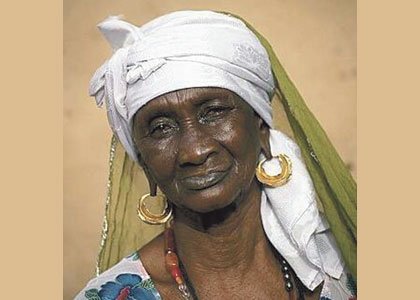ANNAPOLIS — Lamin Jatta was never allowed to watch the 1977 mini-series, “Roots.”
His grandmother, Binta Kinteh, forbid it. What happened to the Gambian slave made famous in the television series was simply too much for the direct descendants to have to live through those horrors again.
Lamin Jatta, president of the Kunta Kinteh Family Foundation and his cousin Chris Haley.
“I learned the story of Kunta Kinteh through my grandmother who is the seventh generation sister of Kunta Kinteh,” said Jatta, who visited Annapolis in June to announce that the capital city would serve as one of the new locations for the Kunta Kinteh Family Foundation, which strives to empower the legacy of the former slave who was infamously given the name, “Toby,” by slave masters.
Jatta says the foundation has been established to provide awareness about who Kunta Kinteh really was and to help bring together cultures from various lands. He says Annapolis was an obvious choice as it was there on the docks where slaves, including Kunta Kinteh, first arrived in America.
Also, a memorial had previously been established in downtown Annapolis that features a statue of Kunta Kinteh.
“It was my grandmother who told the story to Alex Haley in 1967 and, as the elder of the family, she was responsible for telling [the] story,” Jatta said. Even before she told Haley the story, Jatta’s grandmother had often told him and others in the family about how their ancestors disappeared from the small village and how ship captains bound and chained them as they crossed the Atlantic Ocean and endured the brutal treatment of slave traders and owners.
“Eventually, my grandmother and Alex Haley realized they were talking about the same person and then the book, ‘Roots,’ came out in 1977 and put our town of Juffureh on the world map.”
Jatta says many tourists, mostly from Europe, regularly visit the village of Juffureh in Gambia.
With all of them having watched the ABC Television mini-series, “Roots,” each visitor proved as curious as the next. Then, there are those who come to learn about the history and culture of the natives.
Up until her death in 2004, Binta Kinteh served as host to all tourists, not taking any money for the regular pilgrimage there. Many would sleep outside of the family’s home in Juffureh and today, nearly 40 years after the book and mini-series, many still do.
“Our goal is to bring together African Americans from the Diaspora, Caribbean and Africans to keep our stories beyond Black History Month. We should pass on these stories to the next generation,” Jatta said.
He says Kunta Kinteh Island in Gambia will be a permanent place of healing and reconciliation. A vision he also has for Annapolis.
The Kunta Kinteh Family Foundation includes all of the descendants of the late slave and the foundation is active in Gambia and the United States. The foundation seeks to improve the lives of those in the West African village by building a strong infrastructure and providing better opportunities for tourism. Plans also include building a research center to help provide clean drinking water for those in Juffureh and to support school children and, hopefully, to build a health care center.
“We want to help beneficiaries with schools, safe drinking water and medical help,” Jatta said. “Connecting African Americans would be accomplished by taking a trip to the Gambia. We will have a symposium to address questions. Some Africans have them about African Americans. Some African Americans ask me things such as, ‘Did Africans sell their own people?’ I’m not saying we can forget what happened in the past, but we can also move on and look forward to the future. It will help the next generation and give them something to tell their kids.”
For more information about the Kunta Kinteh Family Foundation, visit: www.facebook.com/KuntaKintehhFamilyFoundation.

